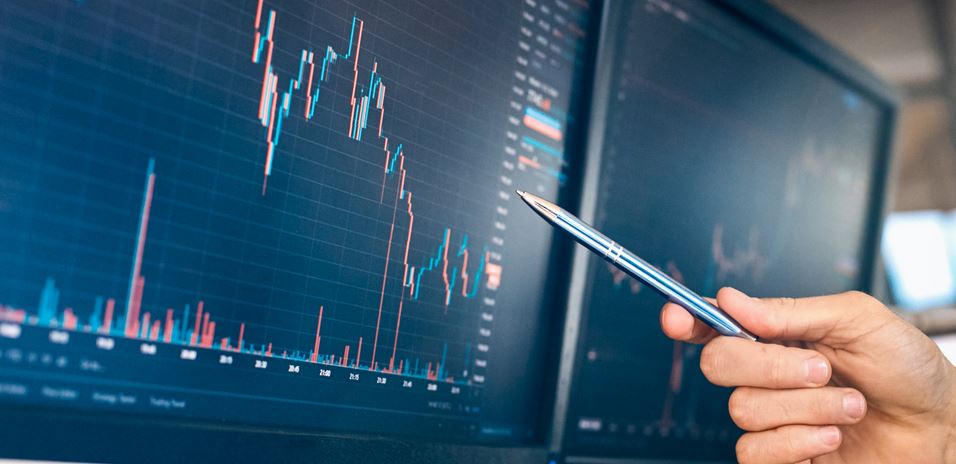Technology advances and changes in the market dynamics are influencing the future of Forex trading. Blockchain technology, which will revolutionize Forex trading, has the potential to change the way foreign exchange trades operate. It has few competitors when it comes to widespread adoption. In response, blockchain pilot programs are underway across various industries, from banking and finance to transportation and shipping.

Blockchain technology can potentially reduce infrastructure costs in the banking industry by one-third, so it makes sense to implement the technology across all segments.
Blockchain technology in the Forex industry
Based on Bank for International Settlements records, the Forex industry has an average daily trading volume of $6.6 trillion, making it the world’s largest exchange market.
Learn how blockchain technology can solve unique problems within the capital markets. Blockchain technology has the potential to address multiple challenges inherent in Forex trading.
Long settlement times:
In most cases, brokers operate with a standard settlement period of T+2 days. Even though it takes only a fraction of a second to process a trade, it takes up to two days for the existing infrastructure to settle your trades. It blocks a trader’s capital and makes tracking back-to-back transactions difficult, especially reversals, for individual traders.
Fragmented technology infrastructure:
Even though the Forex market is the largest in terms of trading volume, its infrastructure is fragmented. Completing a single transaction requires multiple parties to work together, creating multiple instances of the same data across numerous databases. This increases the settlement time for the transaction.
High transaction charges:
The involvement of several parties in trade settlement ultimately drives up the overall cost of a transaction. Having a reliable party handle these processes will minimize transaction charges.
High systemic risk:
In its current form, Forex markets offer little protection to traders, especially new traders who may lose significant amounts of money. Many systemic risks are associated with the Forex market, including volatility, leverage, liquidity, and counterparty risks.
How Blockchain can address these challenges
Blockchain can speed up settlement times by several seconds:
Modern blockchains (not Bitcoin or Ethereum) can settle transactions quickly, which is one of the most critical aspects of blockchain technology. Using blockchain technology, a Forex market can instantly settle trades using proxy tokens. The trader gets the tokens in his exchange wallet in a few seconds.
Unified end-to-end trading platform:
Forex traders can track transactions across different parties without tracking them across multiple platforms. Blockchain allows the fragmented Forex market to work together more smoothly.
Lower transaction charges:
Another significant advantage of blockchain technology is its ability to reduce operational costs. We have already seen how it reduced banking costs by 30%. These savings will help reduce the cost of individual transactions because Blockchain can automate terms using intelligent contracts and automate the multistep settlement process.

Improved transparency:
Aside from these benefits, Blockchain could make Forex trading more transparent. Through tracking the entire transaction, traders, brokers, and exchanges will better understand how the Forex industry operates, which is currently dominated by centralized banks.
Security:
Several blockchain-based technologies provide cryptographic encryption. Some blockchains use encryption that is almost impossible to crack with existing technologies. This will eliminate all cyber threats that damage the Forex trading industry.
Conclusion
Although these innovations offer exciting possibilities, they also present challenges. To ensure a fair and efficient Forex trading ecosystem, addressing ethical issues, regulatory frameworks, and potential risks associated with using advanced technologies is important.


